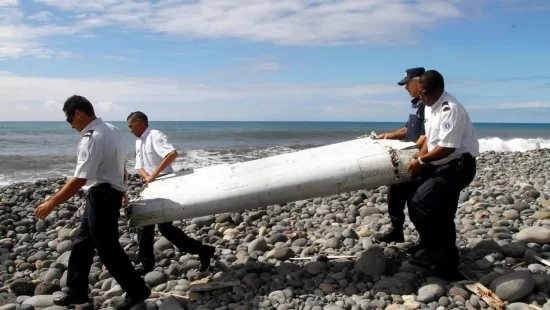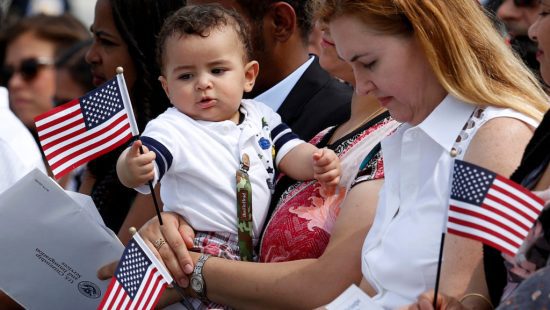“It’s very important for neighborhoods to get organized, for families to set up a support plan for their elderly relatives.”
Among all the crises facing Los Angeles, one has reached a critical stage: hunger among the elderly.
“They’re the most vulnerable to hunger. I experienced it during the COVID pandemic, but now it’s different. During COVID, people stayed home for health reasons; now many don’t go out because they’re afraid—of immigration enforcement and the hard economic situation. Those who get Social Security don’t have enough to live on, and those who don’t rely entirely on city programs and organizations,” says Margaret Irwin, who helps identify buildings where adults over 65 live in City Council District 14.
Irwin works with the Episcopal Office of the United Methodist Church, Western Jurisdiction, and previously served as Elder Director of the Eagle Rock Neighborhood Council in Los Angeles. Her experience in community work is extensive.
According to Irwin, seniors could reliably receive meals if they had access to information and reached out to CD14 and city offices.
“There are many resources out there, but often the information doesn’t reach them—it doesn’t flow. There are too many communication gaps, and many seniors are left without help simply because they don’t know how to access it,” she adds.
About a quarter of people over 65 who live independently are considered socially isolated, according to a 2018 study published in The Journals of Gerontology. And 43% of people over 60 report feeling lonely, according to another study in JAMA Internal Medicine, cited by The New York Times.
During the pandemic, Irwin compiled a list of elderly residents. She and 25 volunteers called 3,000 phone numbers to offer assistance. Only through direct contact, she said, were they able to connect with many who truly needed help.
“It’s very important for neighborhoods to get organized, for families to set up a support plan for their elderly relatives. We often blame politicians or the city for our problems, but we have a responsibility to be aware of our elders,” she emphasizes.
“I’m very passionate about fighting food insecurity,” says Irwin.
Irwin suggests that neighbors identify seniors who need help, reach out, and offer assistance with tasks the elderly can’t manage. Grandchildren, children, and relatives should take turns visiting their grandparents and ensuring their needs are met.
“I’m very passionate about fighting food insecurity,” says Irwin.
Like other food distribution centers, she has noticed a significant increase in demand for support from seniors. Without a coordinated plan, she warns, addressing the issue will be difficult.
“There are three key things we should be doing: educating people about available resources; confronting the community’s fear of leaving their homes; and addressing the high cost of food, which is a huge burden,” she explains.
Another major challenge, she says, is the community’s lack of knowledge about how to help. “They just don’t know what to do.”
Margaret is convinced that only community action can prevent this crisis from worsening.
“Federal aid isn’t coming—quite the opposite. That’s why we need to go door to door and ask, ‘Are you okay? What do you need?’ That’s my dream. Seniors need more than just food—they need medicine, healthcare, safety, and so much more,” she says.
“The elderly are dying alone,” she concludes.
RESOURCES:
Seniors in Los Angeles can access food distribution through city-run programs like the one with Revolution Foods for homebound seniors, which delivers frozen meals, produces, and dairy, as well as through the county’s Aging & Disabilities Department for both home-delivered and congregate meals. Additionally, the city’s Department of Recreation and Parks operates senior centers that may offer meal programs.
City and county programs
Revolution Foods: A partnership with the city delivers a weekly box of frozen meals, fresh produce, and dairy to seniors 60 and older who are homebound, disabled, or food insecure.
Aging & Disabilities Department: Provides home-delivered and group meals to help older adults remain independent, combat hunger, and promote social interaction.
Los Angeles Department of Recreation and Parks: Operates 29 senior citizen centers that offer various programs, which may include meal services.
How to access services
Check eligibility: Determine which program best fits your needs, such as being homebound or wanting to join a group meal.
Contact the departments: Reach out to the Aging & Disabilities Department or the city’s Department of Recreation and Parks to inquire about meal programs and how to sign up.
Look for specific partnerships: If you are homebound, ask about the Revolution Foods partnership for home delivery.
Where to call:
To find food for elders in Los Angeles, call the LA County Department of Aging at (800) 236-0533, use the Los Angeles Regional Food Bank’s online pantry locator or Foodoasis.la, or contact a specific service like St. Vincent Meals on Wheels for home delivery. Local senior centers also offer congregate meals and social activities.
Phone numbers
LA County Department of Aging: (800) 236-0533
Los Angeles Department of Recreation and Parks (for senior centers): (877) 973-0597
Online resources
LA Regional Food Bank: Use their online pantry locator to find the nearest food pantry or mobile distribution event.
Foodoasis.la: Enter your ZIP code on this free service to find local food pantries and meal services.
FindHelp.org: Search for food pantries and mobile food distribution in your area on FindHelp.org.








